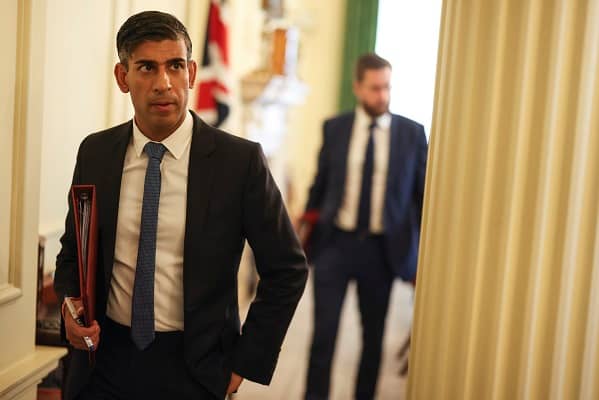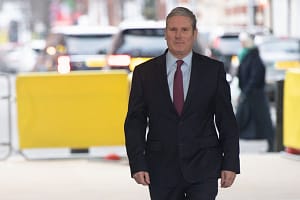Rishi Sunak has backed calls for junior doctors to end their strike action and return back to work which comes after leading medics have warned that NHS patients will “suffer significant harm and trauma.”
Officials have warned that impact of the junior doctors strike action will be felt for weeks or even months and a number of hospitals have asked for them to return back to work.
The British Medical Association (BMA) said that the derogation process was being “undermined” by the health service as it comes after “political pressure.”
The Prime Minister said that NHS leaders are “completely independent of government,” Sunak added that they have his “backing” as they are requesting for them to return back to hospitals.
Sunak told broadcasters in Nottinghamshire, “The NHS is responsible for patient care and it’s right that they do absolutely everything they can to ensure patient care.
“These strikes are disrupting people’s lives. They are causing an enormous amount of concern to people.
“It’s absolutely right that NHS leaders, completely independent of Government, are making clinical decisions on the ground. And requesting that extra support where they feel that they need it.
“Of course they have my backing in doing that.”
So far more than 20 derogation requests have been received by the BMA, but none has been approved.
In a letter to NHS bosses, BMA chairman Professor Philip Banfield, said: “This refusal to provide the information necessary to take well informed decisions is fundamentally undermining the derogation process as we are being asked to take decisions about our members’ right to strike without the requisite information. NHS England, it seems, is wilfully placing the BMA in an impossible situation.
“We are increasingly drawing the conclusion that NHS England’s change in attitude towards the process is not due to concerns around patient safety but due to political pressure to maintain a higher level of service, undermine our strike action and push the BMA into refusing an increasing number of requests – requests, we believe, would not have been put to us during previous rounds of strike action.”
Matthew Taylor, chief executive of the NHS Confederation, said: “NHS trusts have been working at pace to prepare for these strikes, which come during one of the busiest weeks of the year for the health service.
“They are dealing with rising levels of winter viruses in the midst of industrial action and higher than anticipated staff sickness.
“A number of trusts have already declared critical incidents, with pressure likely to get worse as the walkout continues this week.
“Rather than accusing hospital leaders of refusing to provide the required information in full to the BMA, this is more about them needing to limit the precious time they and their teams have available to filling in forms when patient safety could be at risk.”
The Prime Minister said members of the public should still seek help when they need it, he then urged junior doctors to “get round the table” to start negotiations.
Sunak said, “Anyone who needs emergency treatment should just contact their health service as they normally would. But what it does highlight is the damage that these strikes are having.
“At this point, every other part of the NHS workforce has found a sensible, fair agreement with the Government including nurses, midwives, paramedics, consultants, doctors and specialty doctors.
“It’s only the junior doctors who are now on strike and I would urge them to get round the table so that we can resolve this, and bring an end to this disruption and the impact it is having on more people up and down the country.”







Leave a Comment